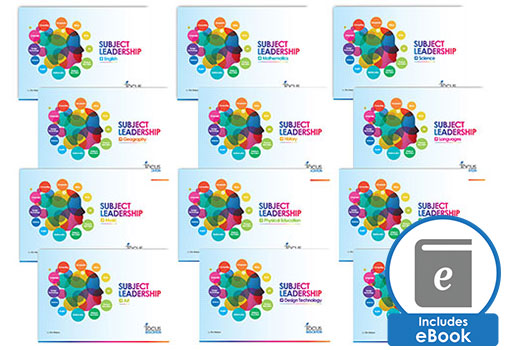
Developing Middle Leaders in primary schools
I’ve been working in and around Sunderland recently and a lot of the work has been around middle leadership in primary schools, speaking at conferences and also working with a couple of my ‘package’ schools. We call them package schools because they have bought a package of consultant time; normally three to five days throughout the year. Of course, they aren’t ‘my’ schools at all. But you do develop a relationship with them as you get to know the staff and pupils; the ups and downs of the SAT results, and the raised apprehension in the term when inspection might be due; the behind the scenes issues affecting the school because of governance or parents.
Anyway, I know Sunderland from many years ago, because I did my degree in primary education there. So yes, I am actually qualified to teach, just in case you’ve attended any of my courses and left having doubts. But despite coming from teaching stock, (my mum and dad met at teacher training college) I didn’t actually apply to Sunderland because of any great wish to be a teacher at the time.
I applied so we could keep the band together. It was the typical story of four teenagers who formed a band at secondary school and knew, deep down, that enthusiasm, self-belief and turn-it-up-to-eleven volume would more than make up for the lack of any discernible talent. And the singer and drummer both applied for, and got places at, Sunderland. The lead guitarist was in the year below so he would have to be jettisoned, but he’d always been more into Queen than The Cure so we decided we could live with that.
I was the bass player (the easiest instrument to play in a group with a low mean average in terms of musical ability anyway) and it was down to me to apply through clearing and get a place on whatever course my eclectic range of ‘A’ levels would find acceptable.
So I did primary education. I’d enjoyed school myself and helped at a few holiday clubs for kids as a teenager. So I felt more than suited to the role and mum was happy.
And the band moved North. We enlisted a new Johnny Marr–style guitarist, if only in looks, and we played every pub, club and student union in the North East that would have us, just waiting for our demo tape to reach the right record company desk.
(Spoiler alert: We never made it big. We weren’t the act you missed at Band Aid)
But earlier this year I was able to text the lead singer, who is still a good friend, and tell him I’d finally ‘played’ the National Indoor Arena in Birmingham.
Luckily for those present, no guitars were involved.
Instead my colleague, Sarah ‘Early years’ Quinn and I spoke at the Inspiring Leadership Conference in one of the side halls.
And we spoke about Middle Leadership.
While researching for that talk, I found the following table in a book by Jo Owen. It ranks from 1 to 10 the skills and attributes of three professions and is based on research carried out in London.
| City Trader | Teacher | Civil Servant | |
| People skills | 2 | 9 | 4 |
| Organisational skills | 4 | 8 | 8 |
| Analytical skills | 8 | 6 | 6 |
| Action focus | 8 | 6 | 3 |
| Initiative | 6 | 6 | 3 |
| Risk appetite | 9 | 4 | 1 |
What struck me first was that city traders and civil servants appear to lack people skills. Who’d have thought it? Gosh.
And well done teachers. No surprise that teachers score highly on people skills and organisational skills. Try teaching a class of 30+ nine year olds without both of those and you’ve got a ‘hilarious’ fish out of water comedy film straight away.
But consider the teachers who move into middle leadership.
It is then that they are expected to get to grips with data and information about pupil outcomes (Analytical skills). They might be asked to identify issues and draw up an action plan for their subject or phase (Action focus). Then they could be given resources in terms of time and money to move their area of leadership forward (Initiative). And they will make some of the decisions about what course of action to take: which books to buy, which training to recommend to colleagues, what resources to purchase all with the aim of improving outcomes (Risk appetite).
So the basis of my talk at the NIA was to challenge leaders about what support we give aspiring middle leaders to help effectively ‘increase the numbers’ in those four areas in the table above.
Many schools do this well. But some middle leaders do need more support and help. Consider the middle leaders in your own setting for a moment. What bespoke training needs have been identified and what CPD has been provided? How do you know this has been effective?
The National College recognised the need for high quality training for middle leaders and introduced the NPQML. Many schools promote this route to relevant staff.
Some clusters and MATs are resurrecting the support groups for subject leaders that once flourished under the auspices of the local authority but stopped when the advisory services were cut. These can be really beneficial when clearly directed, focused and supported by senior leadership across the schools involved.
My mum was head of English at a secondary school. She was a very good teacher I’m sure, but says there was no support for middle leaders back in her day. For some it was a long-service award. If you were appointed you just got on with it and some middle leaders succeeded and some failed. Surely that wouldn’t happen now would it?
Reminiscing has its place, but there are two things we certainly don’t want to go back to.
The first is the middle leadership of my mum’s era: middle leadership without support, without encouragement and without clearly directed ongoing CPD.
And the second is the idea of getting our band back together, despite always agreeing a reunion would be great when we meet up each year at an annual barbeque and have had a few beers (He’s gone home to fetch his guitar…).
So what points on middle leaders could we take away from all of this?
Well, middle leadership is definitely good and to be encouraged. Whilst middle aged nostalgia is probably not such a good idea.
Continue the Conversation on developing middle leaders in primary schools:
For more information on developing Middle Leaders keep an eye on the Focus Education blog, or get in touch with the Focus Education office on 01457 821 818.
Tim has been a headteacher with a successful track record; his last school had a reputation for innovation and their initiatives have been utilised by others and presented internationally.
School improvement has been at the heart of his career, working as an LLE, a School Improvement Partner, Professional Partner as well as an Ofsted inspector and mentor for trainee inspectors.









